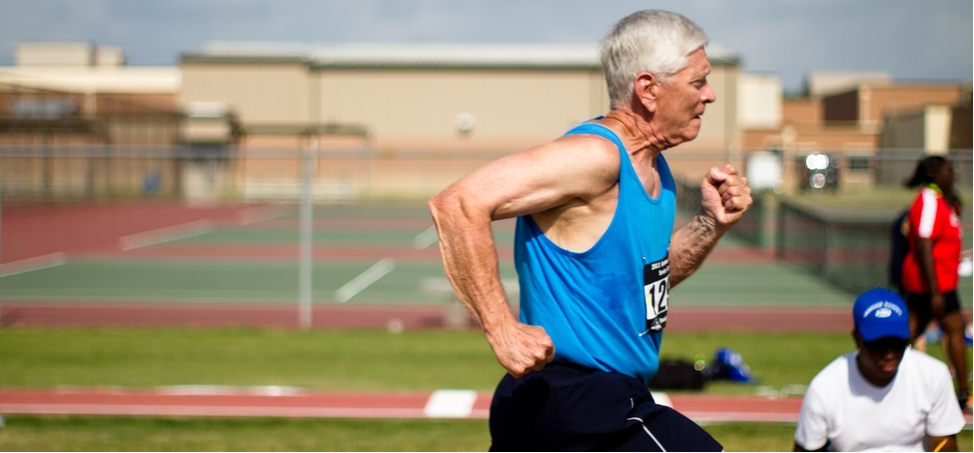Comparing Things – Lead In
A. Context Speaking
- Which sport is more popular? Why?
- Share a favorite exercise for you.
- Tell me about an older athlete.
- What sport do young people prefer?
- Do young and old exercise differently?
- Tell me about the best workout.
- Which sport is less common? Explain.
- Do older people exercise less? Explain.
B. Context Listening

You are going to hear a talk comparing the performance of older and younger athletes. Before you listen, look at the phrases from the talk. Which ones would you associate with young athletes and which ones would you associate with older athletes?
|
|
|
Listen and check if you were right.
Listen again and say whether these sentences are true or false. Correct the sentences that are false.
- Older athletes are getting faster and fitter.
- Runners aged 50+ are speeding up less rapidly than young runners.
- Women aged 60-68 running the New York marathon run on average two minutes faster each year.
- Older athletes are less likely to achieve their peak fitness than younger athletes.
- People grow weaker because they are less active than when they were younger.
Underline the language used to compare in Exercise 3.
- Which sentences contain adjectives?
- Which sentences contain adverbs?
- Which word is used as both an adjective and an adverb?
Show Answer Key and Audio Transcript Answer Key3 1 T 2 F Runners aged 50 and over are actually speeding up more rapidly that younger people. 3 F Women aged 60-68 running the New York marathon run on average four minutes faster each year. 4 F They are just as likely to achieve their peak fitness as younger athletes. 5 T 4 faster and fitter; less rapidly than; two minutes faster; less likely than; weaker; less active than 1 sentence 1 (fitter, faster) sentence 4 (likely, younger) sentence 5 (weaker, active, younger) 2 sentence 2 (rapidly) sentence 3 (faster) 3 Faster is both an adjective and an adverb.
TranscriptThe Olympics is probably the most exciting event in the sports calendar. It’s one of the few opportunities we get to see some of the best athletes in the world competing against each other. And amazingly, each year they seem to be getting better and better. So, you might imagine that the Masters Games, which is for athletes aged 30 and over, would be less exciting to watch. Well, this may not be true for long because recent studies have shown that older athletes are getting faster and fitter. Now, it’s true they’re not as fast as their younger counterparts, and probably younger runners will always be faster than older runners. However, runners aged 50 and over are actually speeding up more rapidly than younger people. The researchers analyzed the finishing times of 415,000 runners in the New York marathon between 1983 and 1999 and discovered that finishers from the older group showed the greatest increases in speed. Interestingly, women aged 60 to 68 improved the most markedly, running on average four minutes faster each year. Men of the same age ran just over one minute faster than previously. Not only that, a second study proved that older athletes can achieve the same degree of physical improvement as those in their twenties and thirties. In other words, they are just as likely to achieve their peak fitness as younger athletes. 25 years ago, few 60-year-old men and even fewer women would have considered it possible to complete a marathon, let alone set record running times. The researchers concluded that people grow weaker not simply because of age, but because they don’t keep as active as they did when they were younger. It would seem that the longer athletes keep competing, the greater their chances of setting new records are. |